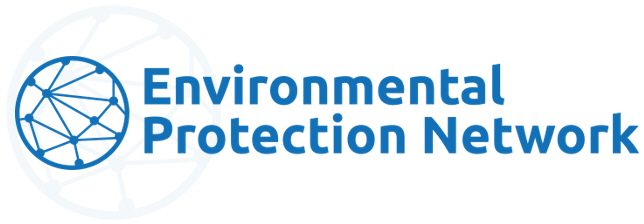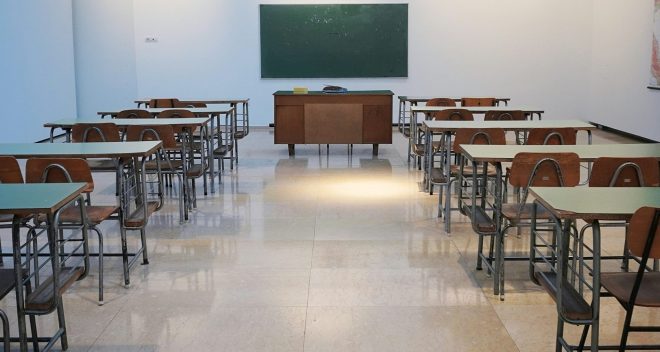Please share this information widely! And please sign up to receive these updates in your inbox every 2 weeks or so.
Below you will find resources and information on:
- Funding to Address Indoor Air Pollution
- Climate Pollution Reduction Implementation Grants (CPRG)
- Environmental and Climate Justice Community Change Grants (Change Grants)
- Closing America’s Wastewater Access Gap Community Initiative
- Additional General Technical Assistance
- Office Hours and Webinars (note that EPN is hosting/co-hosting two webinars TOMORROW, at 1pm and 2pm eastern)
- Resources on Direct Pay and Indirect Costs
Funding to Address Indoor Air Pollution
1) EPA’s Funding to Address Indoor Air Pollution at Schools
EPA is currently accepting applications for Grant Funding to Address Indoor Air Pollution at School. Grantees will assist K-12 schools in low-income, disadvantaged, and Tribal communities in the development and adoption of comprehensive indoor air quality (IAQ) management plans to address air pollution and energy efficiency consistent with EPA’s recommended best practices. EPA anticipates that it will provide approximately $32 million (awarding four to six grants of $5 million to $8 million) to support five years funding. Application are due by 11:59 p.m ET, Tuesday, March 19, 2024.
To help applicants, EPN has created a suggested 6-step application process—including a suggested timeline—for this opportunity.
Climate Pollution Reduction Implementation Grants (CPRG)
2) EPN Step-by-Step Guides to the CPRG Implementation Application Process
EPN has created application guides for the General Competition (due April 1, 2024) and the Tribal/Territories Only Competition (due May 1, 2024) and for Applicants Interested in Applying to both the General Competition and the Tribal and Territories Only Competition. Please reach out to info@environmentalprotectionnetwork.org if you would like additional help.
3) EPA Priority Climate Action Plan (PCAP) Office Hours
EPA is hosting PCAP Office Hours to cover technical questions under CPRG. EPA is collecting technical questions from Tribes and Territories until March 1st using this form.
States, MSAs, Tribes and Territories Office Hours
– Wednesday, February 14, 2:00-3:30 PM ET: Register here!
Tribes and Territories Only Office Hours
Wednesday, February 28, 3:30-4:30 PM ET: Register here!
Wednesday, March 13, 3:30-4:30 PM ET: Register here!
Reminder! Priority Climate Action Plans (PCAPs) are due March 1, 2024, for states and metro areas, and April 1, 2024, for tribes and territories (and March 1 for tribes and territories applying under the CPRG implementation grants general competition).
4) CPRG Training, Tools, and Resources
Visit EPA’s CPRG Training, Tools and Technical Assistance webpage for a number of helpful resources (including 1-1.5 trainings and Qs and As).
5) CPRG Qs and As
CPRG implementation grant competition Questions and Answers are now available (general competition questions and answers were updated on January 25, 2024; Tribes and territories competition questions and answers were updated January 8, 2024). Additional questions on the implementation grants competitions should be sent to CPRG@epa.gov.
6) Technical Assistance Forums
Click here for the latest Questions and Answers from the Technical Assistance Forums. The forums provide opportunities for training and technical assistance to grant recipients from EPA and external subject matter experts and facilitate peer-to-peer collaboration, mentoring, and sharing of case studies, best practices, and lessons learned.
In addition, EPA continues to update the CPRG Planning Grantees Contact Information on the CPRG website. If you’re the lead organization for a CPRG planning grant and you have a public website for your CPRG planning effort, please email CPRG.EPA@endyna.com to add the URL to their directory!
Environmental and Climate Justice Community Change Grants (Change Grants)
7) EPN 6-Step Application Guides for the Change Grants
EPN has updated our 6-step application guides for Track I and Track II with a sample proposal narrative for Track 1 and additional templates/samples for Track I attachments. In addition, EPA has provided and updated FAQ document. Although the final deadline for the Change Grants is November 21, 2024, there will be initial award announcements as soon as March 2024. As such, EPN suggests that applicants (who are ready) submit by February 20 or ASAP. Please reach out to info@environmentalprotectionnetwork.org if you would like additional help.
8) The Southern Economic Advancement Project (SEAP)
- Federal Grant Readiness Checklist: EPA CCG: This assessment will help organizations determine their eligibility, readiness and capacity to apply for this funding opportunity.
- Decision Tree: EPA CCG: This assessment will help organizations determine if their project meets the criteria for funding and serves as a funding notice blueprint.
9) Community Change Technical Assistance Program (CCTA)
As a reminder, EPA is offering two pro bono technical assistance programs. Sign up for this assistance ASAP!
– Community Change Technical Assistance (CCTA), which includes application support, project planning and development, outreach and engagement, and general capacity building. You can also register for webinars, held weekly on Tuesdays, 3-4 pm ET, through at least March 2024, that review NOFO content and requirements, explain available technical assistance, and answer questions about the grant application process.
– Community Change Equitable Resilience Technical Assistance (CCER TA), which provides free design and project development assistance, community engagement, and partnership development workshops that support climate resilience and environmental justice activities for up to 50 projects in disaster-prone areas.
Closing America’s Wastewater Access Gap Community Initiative
10) Expanding EPA’s Closing America’s Wastewater Access Gap Community Initiative to 150 additional communities
The initiative partners with underserved communities to provide technical assistance on accessing federal wastewater funding. Communities will be selected on a rolling basis; there is no deadline to apply. For questions, email SepticHelp@epa.gov. Interested communities can request assistance by completing the WaterTA request form.
Additional General Technical Assistance
11) Local Infrastructure Hubs (LIH)
The Local Infrastructure Hub is a project of the National League of Cities (NLC) and Bloomberg Philanthropies national program designed to connect cities and towns with the resources and expert advice they need to access federal infrastructure funding in order to drive local progress, improve communities, and deliver results for residents. The following regional hubs provide:
- Deep technical assistance to local governments and community organizations in the United States to increase their access to federal funding (including grant writing!) available through the Infrastructure Investment and Jobs Act and the Inflation Reduction Act.
- Funding assistance for climate and racial equity projects in communities with significant Black populations.
- Access to a network of coordinating partners enabled to provide personnel, technical assistance, and pass-through funding to win federal grants.
– The Southeast Sustainability Directors Network (SSDN) Southeast Regional Local Infrastructure HUB (LIH) : The SSDN LIH is accepting applications from community-based organizations and local governments in the Southeast (AL, AR, FL, GA, LA, MS, NC, SC, TN, TX, and VA). Visit their website to download the invitation and application. And all questions should be directed to Nick Deffley at nick@southeastsdn.org. In addition, click here for SSDN’s live-updated database of federal funding opportunities.
– Elevate’s Midwest Local Infrastructure HUB: Elevate’s LIH serves Midwest states, including IL, KS, KY (Louisville), MI, MO, and OH. No application is necessary for assistance. For more information or to request assistance contact Ramsay Ritchie at ramsay.ritchie@elevatenp.org.
Office Hours and Webinars
12) A2 and EPN Community Change Grants and Grantmakers Overview
The Anthropocene Alliance (A2) and the Environmental Protection Network (EPN) will be co-hosting monthly virtual discussions at 1pm eastern on the second Wednesday of every month, focused on federal funding and other topics of interest for frontline and environmental justice communities nationally.
- Wednesday, February 14, 1pm ET – EPN will present information about EPA Community Change Grants and the EPA Thriving Communities Grantmaking Program (time permitting). We’ll also talk about how A2 and EPN can support you and your applications. Here is the zoom link.
To be added to the monthly calendar invites or to suggest topics for future discussions, email Harriet@AnthropoceneAlliance.org.
13) EPN SAM.gov Registration Office Hours Every Other Week
Please join us Wednesday, February 14, at 1p.m. ET. EPN staff will help you begin, continue, or finish up your registration process. As a reminder, federal funding applicants must have an active SAM.gov and Grants.gov registration in order to apply. To sign up and get the Zoom link, go to tinyurl.com/EPNSAM. Please email davina.resto@environmentalprotectionnetwork.org with any questions.
14) EPA Webinars for Assistance Agreement (grant) Applicants and Recipients
EPA is hosting a series of three webinars, including Competition Process; Procurement, Subawards, and Participant Support Costs; and New EPA Davis-Bacon Grant Term and Condition. During each webinar, EPA staff will review key aspects of EPA’s grants processes and requirements, and participants will have the opportunity to submit questions. You must register in advance for each webinar:
– Competition Grant Process, Tuesday, March 26, 2024, 1-2 pm. ET: This webinar intends to help grant applicants learn how to find and successfully apply for competitive EPA grants. EPA will also provide an overview of the competition process from application through evaluation and selection. Register here.
– Procurement, Subawards, and Participant Support Costs, Wednesday, March 27, 2024, 11:30-12:30 p.m. ET: This training will cover procurement regulations and requirements. Specific topics include: best practices for contracts, consultants, equipment, and supply purchases; review of subawards (grant awards provided by a pass-through entity to a subrecipient); and participant support costs (payments to individuals who participate in grant activities but are not employees of the grant recipient). Register here.
– New EPA Davis-Bacon Grant Term and Condition, Thursday, March 28, 2024, 12:30-1:30 p.m. ET: This training will discuss EPA’s new Davis-Bacon Term and Condition that is required for certain programs that involve construction activities. Register here.
Resources on Direct Pay and Indirect Costs
15) Lawyers for Good Government (L4GG) Elective Pay and Direct Pay Resources Page
L4GG is a community of 125,000 lawyers, law students, and activists fighting to ensure equal rights, equal opportunities, and equal justice under the law. Their Elective Pay and Direct Pay Resources Page provides information on The IRS Pre-Registration Portal; applicable regulations and guidance from the treasury; L4GG worksheets, fact sheets, and webinars; and more. In addition, you can fill out an intake form for their Clean Energy Funding clinic here.
16) Congressional Progressive Caucus (CPC) Center “Direct Pay Pre-Registration Requirements: A Step-by-Step Guide”
In response to the IRS opening pre-registration for Direct Pay (aka Elective Pay), the CPC Center published a new step-by-step guide that explains what you will need to pre-register and when. As a reminder, Direct Pay allows tax-exempt entities such as local or state governments, schools, houses of worship, and other nonprofits to receive tax-free, cash payments from the federal government for completing sustainable energy projects. Eligible entities interested in taking advantage of Direct Pay must pre-register their clean energy project(s) with the IRS.
For those who have either completed or are planning a Direct Pay project, the guide assists in understanding how to fulfill the pre-registration requirements and protect your project’s eligibility. To request Technical Assistance on pre-registration or other concerns, fill out this form. You can also reference CPC Center’s FAQS on Direct Pay for more information as well as a partner toolkit for talking points and helpful language about Direct Pay.
17) EPA Grants Indirect Cost Rates Webinar Materials
EPA’s Office of Grants and Debarment provided the materials below from a December 6, 2023, webinar, which provided an understanding of how indirect cost rates are calculated and approved. It also included a review of EPA’s Indirect Cost Rate Policy and the Indirect Cost Rate Agreement Term and Condition, as well as a review of which rates are allowable for the different recipient types. Presenters also discussed how to properly apply an approved rate to its approved base and how to apply the 10% de minimis indirect cost rate correctly. Webinar materials included:
– Indirect Cost Rates Webinar Presentation
– Helpful Links
– Frequently Asked Questions

